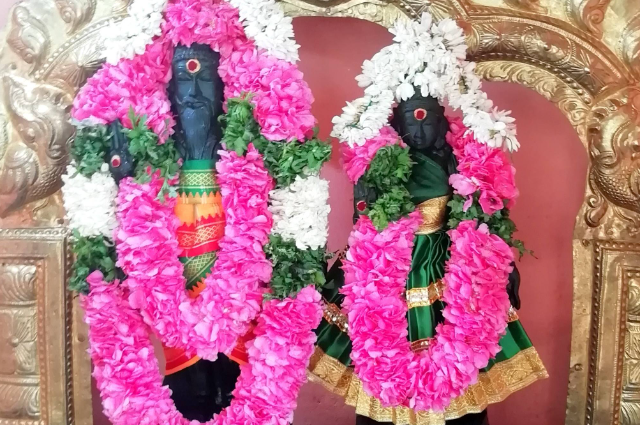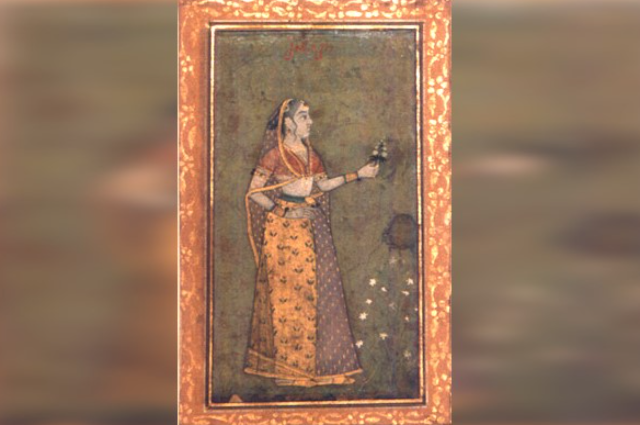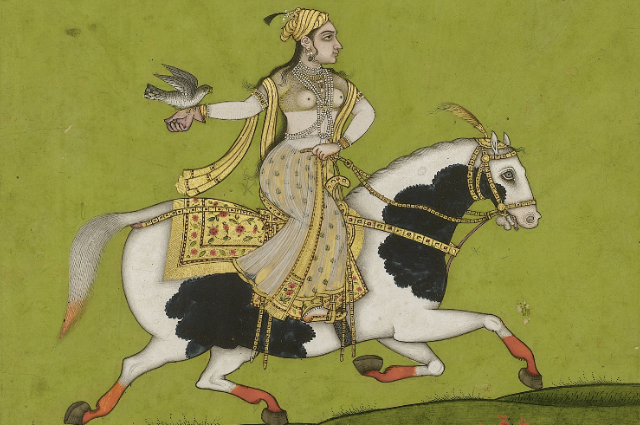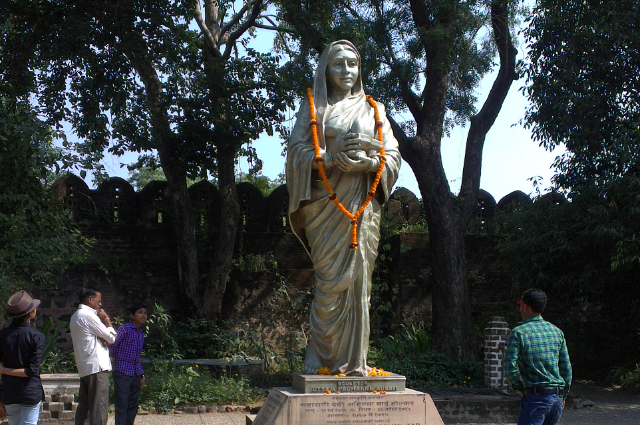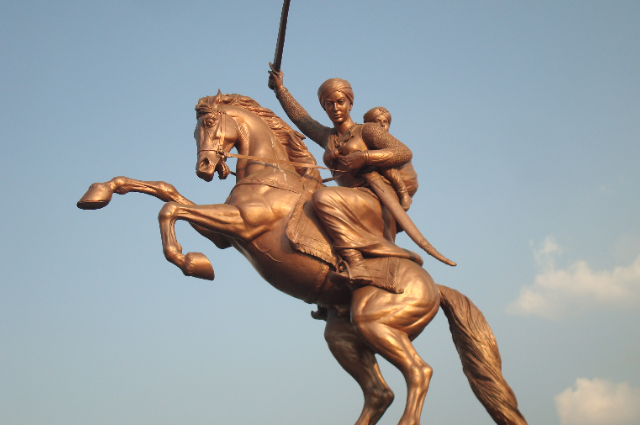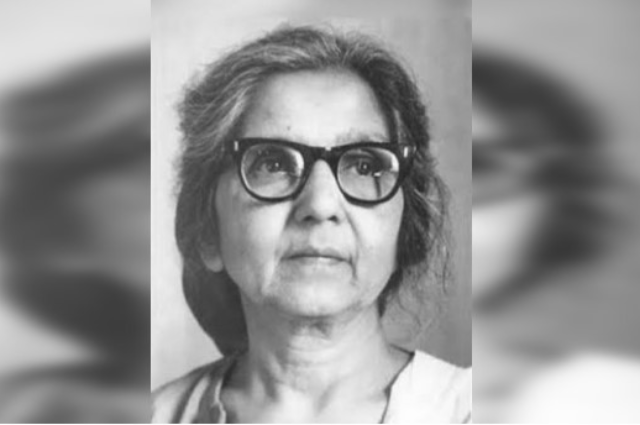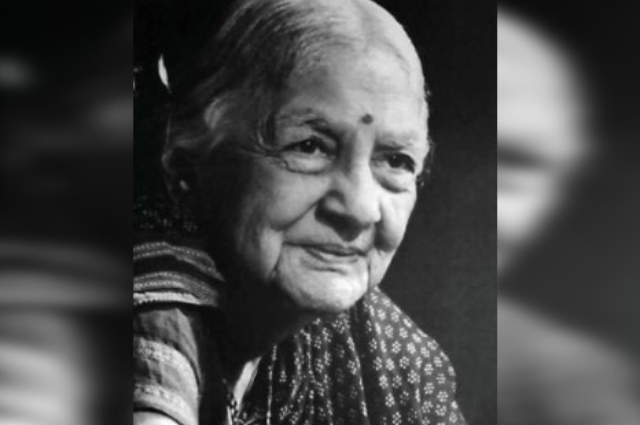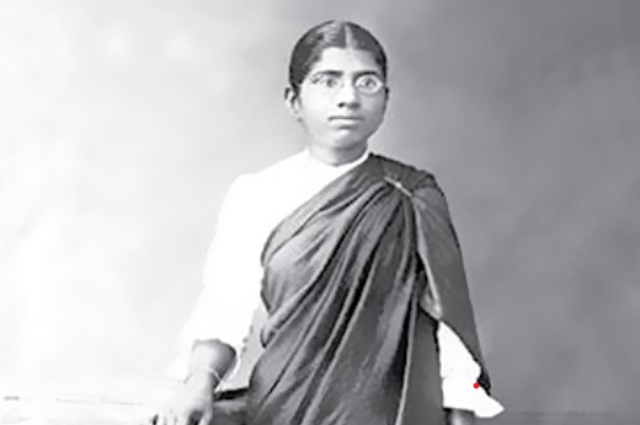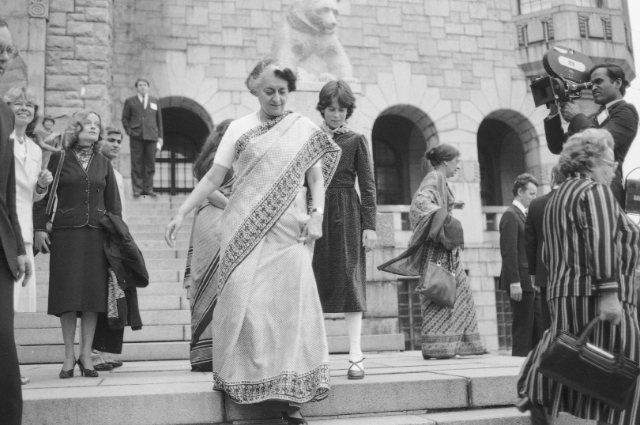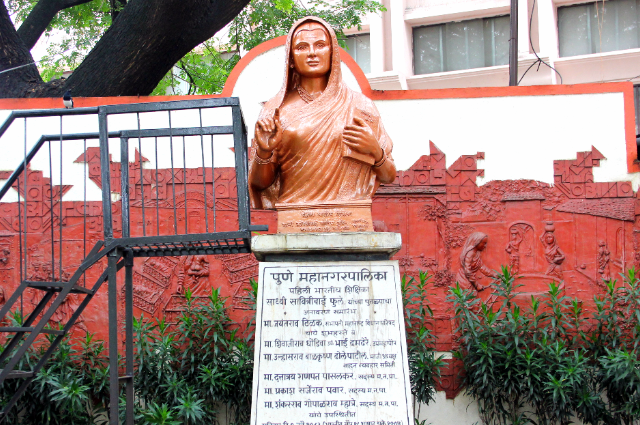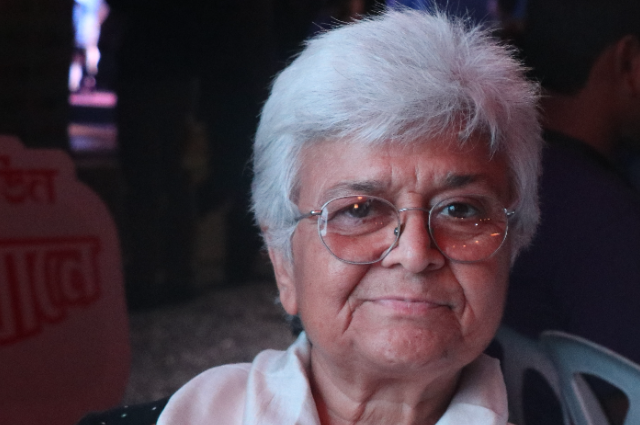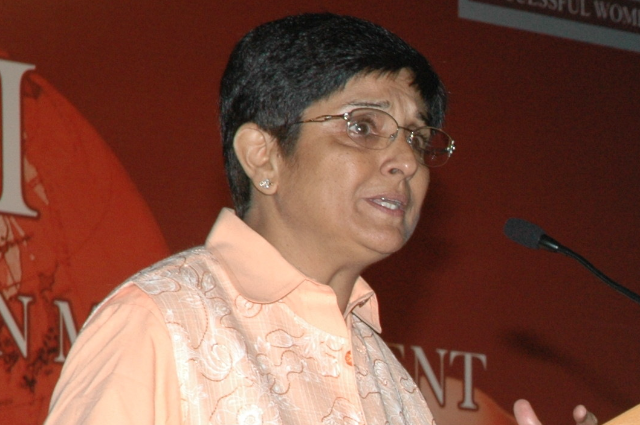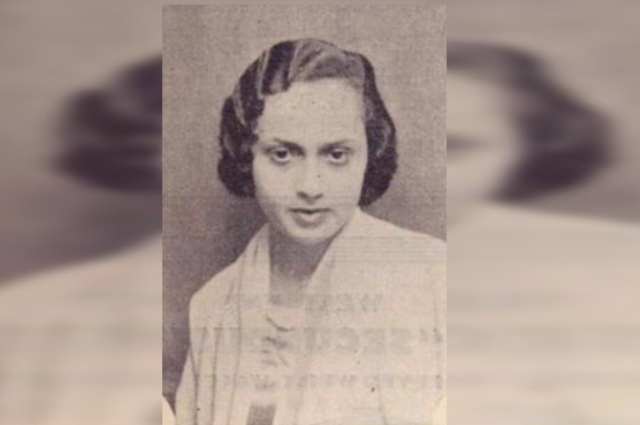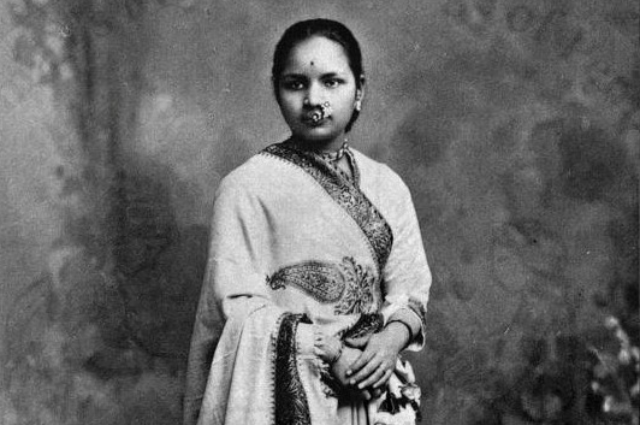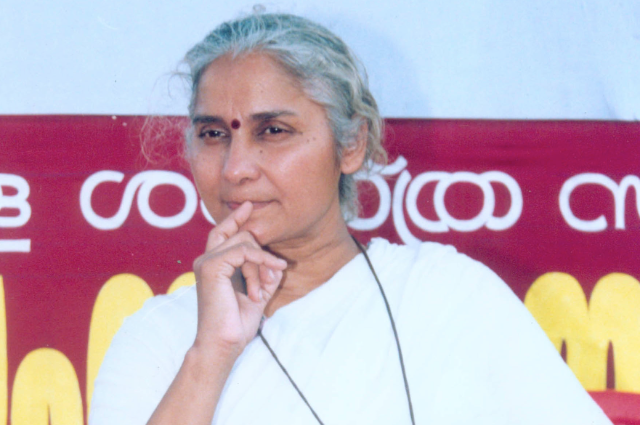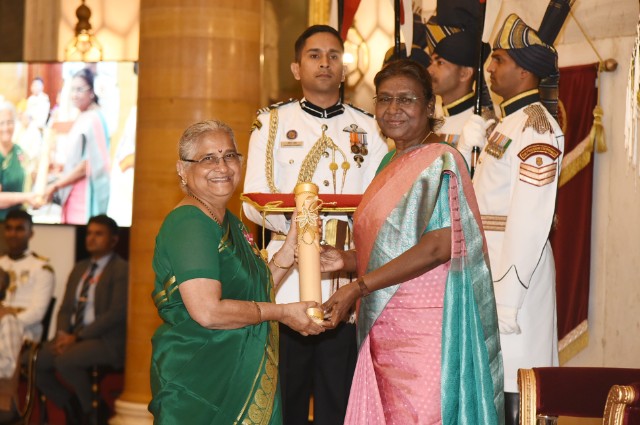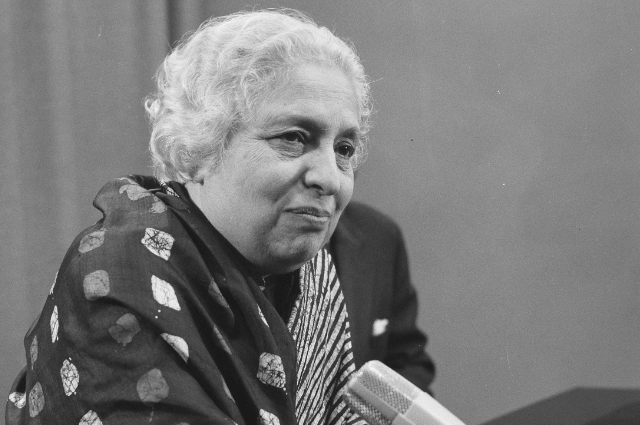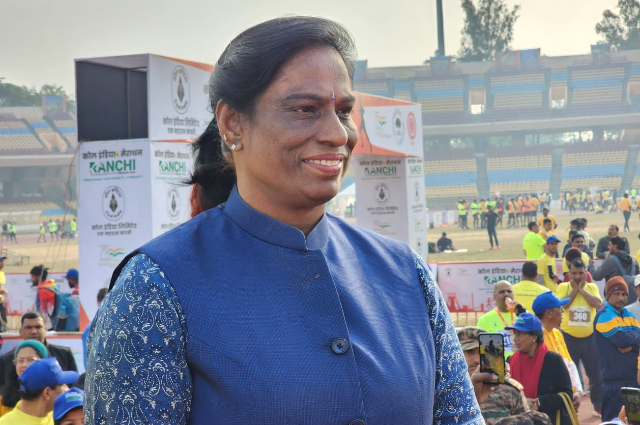Ancient India: Pioneers of Wisdom and Strength
Lopamudra: A Sage Beyond Her Time
In the ancient texts of India, amidst the grandeur of Vedic hymns and philosophical debates, the name Lopamudra shines as a beacon of intellectual and spiritual brilliance. Known primarily for her hymns in the Rig Veda, Lopamudra's contributions are often overshadowed by her male counterparts. Yet, her role in Vedic literature is profound, and her influence extends far beyond the confines of her time.
Lopamudra was not merely the wife of the sage Agastya but an intellectual force in her own right. Her hymns are notable for their lyrical beauty and depth, reflecting a complex understanding of life, love, and spirituality. In one of her most celebrated hymns, she explores the emotional and spiritual dimensions of marital relationships, challenging the conventional ascetic norms of the time that favored renunciation over worldly attachments. Her hymns emphasize that spiritual growth can be nurtured within the context of human relationships, presenting a more holistic view of the pursuit of enlightenment.
Lopamudra’s poetry is characterized by its profound philosophical inquiries and its reflection on the human condition. Her hymns often address themes of love, devotion, and the quest for knowledge, offering a unique perspective that integrates both personal and spiritual realms. This approach not only enriched Vedic literature but also paved the way for a broader understanding of the relationship between the divine and the mundane.
Her legacy, though less celebrated than her male contemporaries, is a testament to the critical role women played in shaping the intellectual and spiritual landscape of ancient India. Lopamudra's contributions continue to inspire scholars and practitioners, serving as a reminder of the rich and diverse heritage of female intellectualism in Indian history.
Gargi Vachaknavi: The Philosopher Queen
Gargi Vachaknavi stands as a monumental figure in the annals of Indian philosophy, known for her participation in the famous Brahmayajna debate. Her intellectual prowess and courage in engaging with the most profound metaphysical questions of her time are celebrated, yet her contributions are often overlooked in mainstream historical narratives.
The Brahmayajna was a scholarly assembly held in the court of King Janaka of Mithila, where the greatest minds of the time gathered to discuss and debate the nature of reality. Gargi Vachaknavi’s presence at this assembly was not just a matter of participating but of challenging the very limits of philosophical discourse. Her questions to the sage Yajnavalkya were both profound and probing, addressing the nature of the universe, the self, and the ultimate reality.
Gargi’s inquiries were so penetrating that they forced Yajnavalkya to confront the boundaries of human knowledge. Her ability to engage in such high-level discourse reflects her deep understanding of the philosophical and metaphysical aspects of existence. Her contributions to the Brahmayajna are a testament to her role as a leading thinker and philosopher in ancient India.
Beyond her participation in debates, Gargi’s philosophical insights have had a lasting impact on Vedic thought. Her legacy is one of intellectual courage and the quest for knowledge, serving as an inspiration for future generations to engage with the complexities of existence and the nature of reality.
Durdhara: The Silent Sacrifice
The story of Durdhara, the wife of Chandragupta Maurya, is a poignant chapter in the history of ancient India. Although her life and sacrifice are less celebrated, her contribution to the survival of the Mauryan Empire is both significant and tragic. Durdhara’s story reflects the often-overlooked sacrifices made by women in sustaining dynastic legacies and political stability.
Durdhara’s life took a tragic turn when she was poisoned during her pregnancy, allegedly due to a conspiracy orchestrated by Chandragupta’s enemies. Despite her suffering, her sacrifice played a crucial role in ensuring the survival of her son, Bindusara, who succeeded Chandragupta as emperor. The fact that Chanakya, the great advisor, was able to save Bindusara with an antidote highlights the precarious nature of political alliances and the importance of familial bonds in sustaining dynastic rule.
Durdhara’s sacrifice underscores the often-unacknowledged role of women in the political and dynastic spheres of ancient India. Her life and untimely death reflect the complex interplay of personal sacrifice and political necessity that characterized the era. Her story is a reminder of the personal costs involved in the broader narratives of political power and stability.
Medieval India: Courage in the Face of Adversity
Rani Durgavati: The Warrior Queen
Rani Durgavati of Gondwana is celebrated for her valour and leadership during the medieval period, particularly in her defence of her kingdom against the Mughal Empire. Her reign was marked by her strategic acumen and her unwavering commitment to her people, making her one of the most formidable female leaders of her time.
Durgavati ascended to the throne after the death of her husband and faced immediate challenges from external threats. The Mughal Empire, under Emperor Akbar, sought to expand its territory into Gondwana, leading to a conflict that tested her leadership and military skills. During the Battle of Narrai, Rani Durgavati’s command and courage were on full display. Despite being vastly outnumbered, she led her troops with exceptional skill and determination.
Her leadership during the siege was characterized by her direct involvement in the battle and her efforts to inspire her soldiers. Rani Durgavati’s ability to hold off the Mughal forces for a time, despite overwhelming odds, is a testament to her strategic brilliance and her deep commitment to her kingdom. Her legacy as a warrior queen continues to be celebrated in Indian history, symbolizing the strength and resilience of women leaders.
Chand Bibi: The Resilient Regent
Chand Bibi’s role as the regent of Ahmednagar during the late 16th century is a powerful example of female leadership and military strategy. Her governance during a tumultuous period and her defence of her city against Mughal forces highlight her resilience and tactical expertise.
When Ahmednagar came under siege by the Mughal Empire, Chand Bibi’s leadership was crucial in the defence of the city. Her ability to manage the siege and negotiate with various factions demonstrated her diplomatic and strategic skills. Chand Bibi’s efforts to protect her realm were marked by her personal involvement in the defence and her strategic manoeuvres to counter the Mughal advance.
Despite facing betrayal from within her own ranks, Chand Bibi’s leadership remained steadfast. Her resistance against the Mughal forces and her attempts to maintain the sovereignty of Ahmednagar reflect her determination and her significant role in the political and military landscape of her time. Her legacy as a resilient and capable regent continues to be remembered as a symbol of female strength and leadership.
Ahalya Bai Holkar: The Visionary Ruler
Ahalya Bai Holkar’s reign over the Malwa region is a remarkable example of female leadership and governance in medieval India. Her ascent to power and her subsequent rule were marked by significant achievements in cultural revival and political stability.
After the death of her husband, Ahalya Bai faced initial resistance to her claim to the throne. However, her effective leadership and governance soon won her the respect of her subjects. Her reign was characterized by efforts to promote traditional crafts and support artisans, contributing to the economic and cultural prosperity of Malwa. Ahalya Bai’s initiatives in building temples, ghats, and wells reflect her commitment to public welfare and cultural preservation.
Her legacy extends beyond her administrative achievements to her role in fostering social and economic development. Ahalya Bai Holkar’s contributions to the preservation of cultural heritage and her efforts in improving the lives of her people highlight her vision and leadership. Her reign remains a significant chapter in the history of medieval India, symbolizing the impact of female rulers on the cultural and economic landscape.
Colonial India: Resilience Against Oppression
Rani Lakshmibai: The Queen of Jhansi
Rani Lakshmibai, the queen of Jhansi, is an iconic figure in Indian history, renowned for her valiant resistance against British colonial forces during the 1857 Revolt. Her leadership and bravery in the face of overwhelming odds make her one of the most celebrated heroines of India’s fight for independence.
Born into the Maratha Bhonsle dynasty, Lakshmibai’s early life was marked by her marriage to the king of Jhansi, Raja Gangadhar Rao. After her husband's death, she faced the challenge of securing her son’s position as the rightful heir to the throne amidst the political turmoil of British expansion. The British East India Company, seeking to annex Jhansi, used the pretext of the Doctrine of Lapse to challenge her rule.
In 1857, when the revolt against British rule erupted, Rani Lakshmibai became a central figure in the resistance. Despite being significantly outnumbered and outgunned, she organized a formidable defense of her kingdom. Her strategic acumen and leadership during the Siege of Jhansi were remarkable. She inspired her troops and rallied local support, demonstrating exceptional military and political skills.
Her resistance was characterized by daring military manoeuvres and courageous leadership. Lakshmibai’s ability to lead her forces effectively and her refusal to surrender even when faced with overwhelming odds exemplify her strength and determination. Her ultimate sacrifice, when she died in battle in 1858, made her a martyr for the cause of Indian independence.
Rani Lakshmibai’s legacy is celebrated as a symbol of resistance and courage. Her life and struggle serve as an enduring reminder of the fight for freedom and the role of women in shaping India’s history. Her story continues to inspire generations, reflecting the enduring spirit of defiance against oppression.
Aruna Asaf Ali: The Rebel Leader
Aruna Asaf Ali’s name is synonymous with courage and resilience in the Indian freedom struggle. Known for her leadership in the Quit India Movement of 1942, her role in the independence movement is a testament to her commitment to justice and her ability to mobilize resistance against British colonial rule.
Born into a progressive family in 1909, Aruna Asaf Ali was exposed to political activism early in her life. Her involvement in the Indian National Congress and her participation in various protests and campaigns against British rule demonstrated her dedication to the cause of independence. During the Quit India Movement, her leadership became particularly prominent. As the movement faced severe repression from the British authorities, Aruna Asaf Ali took on a significant role in organizing and leading protests.
Her activism included the distribution of revolutionary literature, organizing strikes, and rallying support for the independence movement. Her efforts were not without risk, as she faced arrest and severe persecution. Despite these challenges, Aruna Asaf Ali remained steadfast in her commitment to the cause.
One of her most notable contributions was her role in leading the flag hoisting ceremony at the Gowalia Tank Maidan in Bombay (now Mumbai), a significant act of defiance against British authorities. This event symbolized the collective resolve of the Indian people to achieve independence and marked a significant moment in the Quit India Movement.
Aruna Asaf Ali’s legacy extends beyond her role in the independence movement. Her post-independence efforts included contributions to social reforms and the establishment of various educational and social institutions. Her life is a testament to the enduring spirit of activism and the impact of individual leadership in the struggle for freedom.
Kamaladevi Chattopadhyay: The Renaissance Woman
Kamaladevi Chattopadhyay was a pioneering figure in Indian politics, arts, and social reform. Her contributions to the Indian independence movement, as well as her efforts in promoting Indian crafts and women’s rights, make her one of the most influential women in modern Indian history.
Born in 1903, Kamaladevi Chattopadhyay was a key figure in the Indian freedom struggle, working alongside leaders like Mahatma Gandhi and Jawaharlal Nehru. Her involvement in various campaigns, including the Salt March and the Quit India Movement, demonstrated her commitment to the cause of independence.
Post-independence, Kamaladevi Chattopadhyay’s work focused on cultural revival and social reform. She played a crucial role in the establishment of institutions like the National Crafts Museum and the All India Women’s Conference. Her efforts in promoting traditional Indian crafts and supporting artisans were instrumental in preserving India’s cultural heritage.
Kamaladevi’s advocacy for women’s rights and education was another significant aspect of her legacy. Her work in promoting women’s participation in public life and improving educational opportunities for girls reflected her dedication to social justice and empowerment.
Her contributions to Indian arts, crafts, and social reforms have had a lasting impact on the country. Kamaladevi Chattopadhyay’s life and work are a testament to her vision and commitment to creating a more just and equitable society.
Dr. Muthulakshmi Reddy: The Trailblazing Physician
Dr. Muthulakshmi Reddy’s achievements in the field of medicine and social reform make her a trailblazer in Indian history. As the first woman to graduate from the Madras Medical College, her contributions to healthcare and her advocacy for women and children’s rights reflect her dedication to improving society.
Born in 1886, Dr. Muthulakshmi Reddy faced significant challenges in pursuing a career in medicine, a field dominated by men at the time. Despite these obstacles, she completed her medical education and went on to become a prominent physician. Her work included the establishment of the Avvai Home for orphaned and destitute girls, reflecting her commitment to social welfare.
Dr. Reddy’s advocacy for maternal and child health led to significant reforms in healthcare. Her efforts in improving medical facilities and promoting healthcare education contributed to better health outcomes for women and children in India. Her work in social reform extended to issues such as child marriage and women’s rights, demonstrating her comprehensive approach to addressing social injustices.
Her legacy as a physician and social reformer continues to inspire, reflecting the impact of her work on healthcare and women’s rights in India. Dr. Muthulakshmi Reddy’s contributions are a testament to her dedication to improving the lives of others and her role in shaping modern Indian society.
Post-Independence India: Champions of Change
Indira Gandhi: The Iron Lady of India
Indira Gandhi, India’s first and only female Prime Minister, played a pivotal role in shaping the country’s post-independence trajectory. Her tenure was marked by significant political and economic reforms, as well as her strong leadership during a period of considerable change and challenge.
Born in 1917, Indira Gandhi was deeply influenced by her father, Jawaharlal Nehru, and the ideals of the Indian independence movement. Her political career began in the Indian National Congress, and she rapidly rose through the ranks to become Prime Minister in 1966. Her leadership was characterized by a focus on modernization and social justice.
One of her most notable achievements was the Green Revolution, which transformed India’s agricultural sector and improved food security. Her policies aimed at promoting self-sufficiency in food production and reducing dependence on foreign aid had a profound impact on India’s economy.
Indira Gandhi’s tenure also saw significant political challenges, including the declaration of the Emergency in 1975. While controversial, this period was marked by efforts to address economic instability and social unrest. Her leadership during this time reflected her commitment to maintaining national stability and addressing pressing issues.
Her assassination in 1984 was a tragic event that underscored the political tensions of the time. Indira Gandhi’s legacy is a complex one, encompassing both her achievements and the controversies of her tenure. Her role in shaping modern India is undeniable, and her impact on the country’s political and economic landscape continues to be felt.
Savitribai Phule: Pioneer of Women’s Education
Savitribai Phule’s pioneering efforts in the field of education and social reform have had a lasting impact on Indian society. As one of the first female educators in India, her work in promoting education for girls and marginalized communities marked a significant departure from traditional norms.
Born in 1831, Savitribai Phule faced numerous challenges in pursuing her vision of education for women. Alongside her husband, Jyotirao Phule, she established the first school for girls in Pune, breaking new ground in the field of women’s education. Her commitment to providing educational opportunities for girls from disadvantaged backgrounds was revolutionary, challenging societal norms and advocating for gender equality.
Savitribai’s efforts extended beyond education to address broader social issues such as untouchability and caste discrimination. Her advocacy for the rights of women and marginalized communities was an integral part of her work, reflecting her dedication to social justice and reform.
Her legacy as an educator and social reformer is a testament to her vision and courage. Savitribai Phule’s contributions to education and her role in challenging social injustices continue to inspire and shape discussions on gender equality and social reform in India.
Kamla Bhasin: Advocate for Women’s Rights and Gender Equality
Kamla Bhasin was a prominent feminist and social activist whose work in promoting gender equality and women’s rights has had a significant impact on Indian society. Her advocacy for women’s empowerment and her contributions to the feminist movement reflect her commitment to creating a more equitable and just society.
Born in 1938, Kamla Bhasin’s activism spanned several decades and included efforts to address issues such as gender-based violence, reproductive rights, and economic empowerment. Her work with organizations such as the Sangat and the Women’s Resource Centre was instrumental in advancing women’s rights and promoting gender equality.
Kamla Bhasin’s writings, speeches, and advocacy efforts were characterized by her focus on addressing the root causes of gender inequality and advocating for systemic change. Her contributions to the feminist movement included promoting women’s participation in public life, advocating for legal reforms, and raising awareness about gender-based violence.
Her legacy as a feminist and social activist continues to inspire and influence discussions on gender equality and women’s rights. Kamla Bhasin’s work reflects her dedication to creating a more just and equitable society, and her impact on the feminist movement remains a significant part of her legacy.
Modern India: Catalysts for Social Change
Kiran Bedi: The Pioneering Police Officer
Kiran Bedi stands out as a trailblazer in the Indian police force, breaking barriers and setting new standards in law enforcement. Her career is a testament to her dedication to justice and reform, and her pioneering efforts have left an indelible mark on the Indian policing system.
Born in 1949, Kiran Bedi’s journey into the Indian Police Service (IPS) began in 1972 when she became the first woman to join the cadre. Her entry into the male-dominated field was met with scepticism, but she quickly proved her mettle. Known for her innovative approach to policing and her commitment to reform, Bedi implemented several initiatives that transformed the way law enforcement was conducted in India.
One of her notable contributions was her work at Tihar Jail, where she served as the Inspector General of Prisons. During her tenure, she introduced a range of reforms aimed at improving the conditions for inmates. Her initiatives included vocational training programs, educational opportunities, and the introduction of meditation and yoga to help rehabilitate prisoners. These reforms were ground-breaking and set a precedent for prison management in India.
Kiran Bedi’s advocacy for women’s rights and her work in promoting gender equality were also significant aspects of her career. She actively worked to address issues such as domestic violence and discrimination, using her position to champion social justice.
Her contributions to policing and social reform have been recognized through numerous awards and honours, including the Ramon Magsaysay Award for Public Service. Kiran Bedi’s legacy is one of breaking barriers, pioneering reform, and advocating for justice, and her impact continues to influence the Indian policing system and social justice initiatives.
Aditi Gupta: The Digital Entrepreneur
Aditi Gupta is a contemporary figure whose contributions to digital entrepreneurship and social innovation reflect her commitment to addressing pressing issues through technology and business. Her work in the field of digital health and women’s empowerment has made a significant impact on modern Indian society.
Born in 1987, Aditi Gupta co-founded the start-up “Menstrupedia,” a digital platform aimed at providing education and awareness about menstrual health. The platform addresses a critical need for information and resources related to menstrual hygiene, a topic that has long been stigmatized and neglected in Indian society.
Menstrupedia’s innovative approach includes the use of comics and digital content to educate young people about menstrual health, breaking down barriers and promoting open dialogue. The platform has gained widespread recognition for its efforts to improve menstrual hygiene and empower women through education.
Aditi Gupta’s work extends beyond menstrual health to broader issues of women’s empowerment and digital innovation. Her contributions to the field of digital entrepreneurship reflect her dedication to using technology to address social challenges and improve the lives of women and marginalized communities.
Her impact on digital health and women’s empowerment underscores the transformative potential of technology and entrepreneurship in addressing social issues. Aditi Gupta’s legacy is one of innovation and dedication to improving the lives of others, and her work continues to influence the field of digital health and social innovation.
Tara Ali Baig: The Trailblazing Journalist
Tara Ali Baig’s contributions to journalism and social reform reflect her commitment to addressing social issues and advocating for justice. Her work as a journalist and social activist has had a significant impact on modern Indian society.
Born in 1925, Tara Ali Baig’s career in journalism began in the 1940s, and she became known for her investigative reporting and advocacy for social justice. Her work included coverage of issues such as communal violence, gender inequality, and human rights abuses.
Tara Ali Baig’s dedication to journalism and social reform was evident in her efforts to bring attention to critical issues and advocate for change. Her investigative reporting and activism were characterized by a commitment to uncovering the truth and promoting social justice.
Her legacy as a journalist and social activist continues to influence discussions on media ethics, social justice, and human rights. Tara Ali Baig’s contributions to journalism and her advocacy for social reform are a testament to her dedication to addressing social challenges and improving the lives of others.
Madhuri Gupta: The Social Reformer and Advocate
Madhuri Gupta’s work as a social reformer and advocate reflects her commitment to addressing social issues and promoting justice. Her contributions to social reform and advocacy have had a significant impact on modern Indian society.
Born in 1940, Madhuri Gupta’s career included efforts to address issues such as gender inequality, social justice, and human rights. Her work involved advocacy for women’s rights, social reform, and community development.
Madhuri Gupta’s dedication to social reform was evident in her efforts to address critical social challenges and promote positive change. Her advocacy for women’s rights and social justice was characterized by a commitment to addressing systemic issues and promoting equality.
Her legacy as a social reformer and advocate continues to influence discussions on social justice and human rights. Madhuri Gupta’s contributions to social reform and her dedication to improving the lives of others reflect her commitment to creating a more equitable and just society.
Sushila Nair: The Advocate for Women’s Empowerment
Sushila Nair’s contributions to women’s empowerment and social reform reflect her dedication to advancing gender equality and addressing social challenges. Her work in promoting women’s rights and empowerment has had a lasting impact on Indian society.
Born in 1935, Sushila Nair’s career included efforts to address issues related to gender inequality, women’s rights, and social justice. Her work involved advocacy for women’s empowerment, education, and economic development.
Sushila Nair’s advocacy for women’s rights was characterized by her efforts to promote gender equality and address systemic issues affecting women. Her contributions to women’s empowerment included supporting initiatives aimed at improving access to education, healthcare, and economic opportunities for women.
Her legacy as an advocate for women’s empowerment continues to inspire and influence discussions on gender equality and social reform. Sushila Nair’s contributions to women’s rights and her dedication to addressing social challenges reflect her commitment to creating a more equitable and just society.
Anandi Gopal Joshi: The Trailblazing Physician
Anandi Gopal Joshi’s contributions to medicine and social reform reflect her commitment to improving healthcare and advancing women’s rights. Her work as a physician and advocate has had a lasting impact on Indian society.
Born in 1865, Anandi Gopal Joshi’s career was marked by her efforts to address healthcare issues and promote women’s rights. She was one of the first Indian women to obtain a medical degree, breaking barriers and setting new standards in the field of medicine.
Anandi Gopal Joshi’s work included efforts to improve healthcare for women and marginalized communities. Her contributions to medicine and social reform reflected her dedication to addressing critical issues and promoting positive change.
Her legacy as a physician and social reformer continues to inspire and influence discussions on healthcare and women’s rights. Anandi Gopal Joshi’s contributions to medicine and her commitment to improving the lives of others reflect her impact on modern Indian society.
Suhasini Mulay: The Advocate for Education and Social Reform
Suhasini Mulay’s contributions to education and social reform reflect her dedication to improving access to education and addressing social challenges. Her work in promoting education and social justice has had a significant impact on Indian society.
Born in 1936, Suhasini Mulay’s career included efforts to address issues related to education, social justice, and community development. Her work involved advocacy for education, women’s rights, and social reform.
Suhasini Mulay’s dedication to education and social reform was evident in her efforts to promote literacy, vocational training, and educational opportunities for marginalized communities. Her contributions to education and social justice reflect her commitment to creating a more equitable and just society.
Her legacy as an advocate for education and social reform continues to influence discussions on educational and social issues. Suhasini Mulay’s contributions to education and social reform reflect her impact on modern Indian society and her dedication to improving the lives of others.
Medha Patkar: The Activist for Environmental and Social Justice
Medha Patkar’s contributions to environmental and social justice reflect her commitment to addressing critical issues and advocating for marginalized communities. Her work as an activist has had a significant impact on modern Indian society.
Born in 1954, Medha Patkar’s career included efforts to address issues such as environmental conservation, social justice, and community development. Her work involved advocacy for the rights of displaced communities, environmental protection, and social reform.
Medha Patkar’s activism was characterized by her efforts to address systemic issues and promote positive change. Her contributions to environmental and social justice included supporting initiatives aimed at improving the lives of marginalized communities and protecting natural resources.
Her legacy as an activist for environmental and social justice continues to influence discussions on social reform and environmental conservation. Medha Patkar’s contributions to activism and her dedication to addressing critical issues reflect her impact on modern Indian society.
Sangeeta Richard: The Advocate for Human Rights
Sangeeta Richard’s work as an advocate for human rights reflects her commitment to addressing social injustices and promoting justice. Her contributions to human rights advocacy have had a significant impact on modern Indian society.
Born in 1964, Sangeeta Richard’s career included efforts to address issues related to human rights, social justice, and legal reform. Her work involved advocacy for the rights of marginalized communities, legal support, and social reform.
Sangeeta Richard’s dedication to human rights was evident in her efforts to address critical issues and promote positive change. Her contributions to human rights advocacy included supporting initiatives aimed at improving access to justice and addressing systemic issues affecting marginalized communities.
Her legacy as an advocate for human rights continues to influence discussions on social justice and legal reform. Sangeeta Richard’s contributions to human rights and her dedication to addressing social challenges reflect her impact on modern Indian society.
Neelam Jhingan: The Advocate for Health and Wellness
Neelam Jhingan’s contributions to health and wellness reflect her dedication to improving public health and addressing social challenges. Her work in promoting health and wellness has had a significant impact on modern Indian society.
Born in 1950, Neelam Jhingan’s career included efforts to address issues related to health, wellness, and social reform. Her work involved advocacy for health education, wellness programs, and community development.
Neelam Jhingan’s dedication to health and wellness was evident in her efforts to promote healthy lifestyles and address critical health issues. Her contributions to public health and social reform reflect her commitment to improving the lives of others.
Her legacy as an advocate for health and wellness continues to influence discussions on public health and social reform. Neelam Jhingan’s contributions to health and wellness and her dedication to addressing social challenges reflect her impact on modern Indian society.
Emerging Voices: Contemporary Contributions
Chandrakanta Katoch: The Environmental Advocate
Chandrakanta Katoch’s work as an environmental advocate reflects her dedication to preserving natural resources and promoting sustainable practices. Her contributions to environmental conservation have had a lasting impact on modern Indian society.
Born in 1962, Chandrakanta Katoch’s career has been marked by her efforts to address environmental challenges and promote sustainable development. Her work includes advocacy for forest conservation, wildlife protection, and community-based environmental initiatives.
One of her notable contributions is her involvement in the conservation of the Himalayan ecosystem. Katoch has worked to raise awareness about the importance of preserving biodiversity and protecting endangered species in the region. Her initiatives include community education programs, conservation projects, and advocacy for sustainable development practices.
Chandrakanta Katoch’s dedication to environmental advocacy reflects her commitment to addressing critical environmental issues and promoting positive change. Her work continues to influence discussions on environmental conservation and sustainability, highlighting the importance of protecting natural resources for future generations.
Rukmini Devi Arundale: The Pioneer in Arts and Culture
Rukmini Devi Arundale’s contributions to the arts and culture of India reflect her dedication to preserving and promoting traditional art forms. Her work as a dancer, choreographer, and cultural advocate has had a significant impact on Indian society.
Born in 1904, Rukmini Devi Arundale’s career was marked by her efforts to revive and popularize Bharatanatyam, a classical Indian dance form. Her work included the establishment of the Kalakshetra Foundation in Chennai, which became a prominent institution for the study and promotion of Bharatanatyam.
Rukmini Devi’s contributions to the arts extended beyond dance to include advocacy for cultural preservation and education. Her efforts to promote traditional art forms and support artists reflected her commitment to preserving India’s cultural heritage.
Her legacy as a pioneer in the arts and culture of India continues to inspire and influence discussions on cultural preservation and artistic expression. Rukmini Devi Arundale’s work highlights the importance of supporting and celebrating traditional art forms and their role in shaping cultural identity.
Dr. V. S. Reddy: The Trailblazer in Science and Technology
Dr. V. S. Reddy’s contributions to science and technology reflect her commitment to advancing knowledge and innovation. Her work in the field of scientific research and technological development has had a significant impact on modern Indian society.
Born in 1945, Dr. Reddy’s career includes significant achievements in the field of chemistry and materials science. Her research has focused on developing new materials and technologies with applications in various industries, including pharmaceuticals and materials engineering.
Dr. Reddy’s contributions to science and technology extend to her role as an educator and mentor. She has been involved in promoting STEM education and encouraging young women to pursue careers in science and technology.
Her legacy as a trailblazer in science and technology continues to influence discussions on innovation and research. Dr. V. S. Reddy’s work highlights the importance of advancing knowledge and supporting women in STEM fields, reflecting her impact on modern science and technology.
Naina Lal Kidwai: The Leader in Business and Finance
Naina Lal Kidwai’s contributions to business and finance reflect her dedication to leadership and innovation in the corporate world. Her work as a business leader and advocate for gender equality has had a significant impact on Indian society.
Born in 1959, Naina Lal Kidwai’s career includes notable achievements in the banking and finance sectors. She served as the Chairperson of HSBC India and has been recognized for her contributions to business leadership and financial management.
Naina Lal Kidwai’s advocacy for gender equality and women’s empowerment is an integral part of her career. She has been involved in initiatives to support women in leadership roles and promote diversity and inclusion in the workplace.
Her legacy as a leader in business and finance continues to influence discussions on corporate leadership and gender equality. Naina Lal Kidwai’s work highlights the importance of supporting women in business and promoting inclusive practices in the corporate world.
Pratibha Patil: The Advocate for Social Justice
Pratibha Patil’s contributions to social justice and public service reflect her dedication to addressing social issues and advocating for marginalized communities. Her work as a politician and public servant has had a significant impact on modern Indian society.
Born in 1934, Pratibha Patil served as the President of India from 2007 to 2012. Her tenure as the country’s highest office included efforts to address issues related to social justice, education, and women’s empowerment.
Pratibha Patil’s advocacy for social justice included initiatives to support disadvantaged communities, promote education, and address gender inequality. Her work in public service reflects her commitment to creating a more equitable and just society.
Her legacy as a public servant and advocate for social justice continues to influence discussions on governance and social reform. Pratibha Patil’s contributions to public service highlight the importance of addressing social challenges and supporting marginalized communities.
Rukmini Devi Dandapani: The Advocate for Women’s Health
Rukmini Devi Dandapani’s contributions to women’s health and social reform reflect her dedication to improving healthcare and addressing gender-specific issues. Her work in promoting women’s health and empowerment has had a significant impact on Indian society.
Born in 1950, Rukmini Devi Dandapani’s career includes efforts to address issues related to women’s health, including reproductive health and maternal care. Her work involves advocacy for healthcare education, access to medical services, and support for women’s health initiatives.
Rukmini Devi’s dedication to women’s health includes efforts to address critical issues such as maternal mortality, reproductive health education, and access to healthcare services. Her contributions to healthcare and social reform reflect her commitment to improving the lives of women and marginalized communities.
Her legacy as an advocate for women’s health continues to influence discussions on healthcare and social reform. Rukmini Devi Dandapani’s work highlights the importance of addressing gender-specific health issues and promoting women’s empowerment through improved healthcare services.
Expanding Impact: Further Remarkable Women
Sudha Murthy: The Advocate for Education and Philanthropy
Sudha Murthy’s contributions to education and philanthropy reflect her dedication to improving the lives of others and advancing social reform. Her work in promoting education and supporting charitable initiatives has had a significant impact on Indian society.
Murthy’s commitment to education is evident in her support for projects aimed at improving literacy rates and providing educational opportunities for marginalized communities. Her contributions extend to supporting women’s empowerment, healthcare, and rural development.
Her legacy as an advocate for education and philanthropy continues to inspire discussions on social responsibility and charitable giving. Sudha Murthy’s work highlights the importance of supporting educational and social initiatives to create a more equitable society.
Kiran Mazumdar-Shaw: The Pioneer in Biotechnology
Kiran Mazumdar-Shaw’s contributions to biotechnology and entrepreneurship reflect her commitment to advancing science and technology. Her work in founding and leading Biocon, a leading biotechnology company, has had a significant impact on modern Indian industry.
Born in 1953, Kiran Mazumdar-Shaw’s career includes notable achievements in the field of biotechnology, including the development of innovative therapies and treatments. Her leadership at Biocon has been marked by efforts to advance research and development in biotechnology and pharmaceuticals.
Mazumdar-Shaw’s contributions extend to supporting women in business and promoting entrepreneurship. Her work in biotechnology and business leadership reflects her dedication to innovation and social impact.
Her legacy as a pioneer in biotechnology continues to influence discussions on science and technology. Kiran Mazumdar-Shaw’s contributions to the field highlight the importance of advancing research and supporting women in leadership roles in science and business.
Dr. Sangeeta Ghosh: The Advocate for Mental Health
Dr. Sangeeta Ghosh’s contributions to mental health advocacy reflect her dedication to improving mental health services and raising awareness about mental health issues. Her work has had a significant impact on modern Indian society.
Born in 1962, Dr. Ghosh’s career includes efforts to address mental health challenges and promote mental well-being. Her work involves advocacy for mental health awareness, support for individuals with mental health conditions, and the development of mental health services.
Dr. Ghosh’s contributions to mental health advocacy include initiatives to reduce stigma, provide support services, and promote mental health education. Her work reflects a commitment to addressing mental health issues and supporting individuals in need.
Her legacy as an advocate for mental health continues to influence discussions on mental health care and social reform. Dr. Sangeeta Ghosh’s contributions highlight the importance of addressing mental health challenges and promoting mental well-being.
Vijaya Lakshmi Pandit: The Diplomat and Politician
Vijaya Lakshmi Pandit’s contributions to diplomacy and politics reflect her dedication to international relations and public service. Her work as a diplomat and politician has had a significant impact on modern Indian society.
Born in 1900, Vijaya Lakshmi Pandit’s career includes notable achievements as India’s first female diplomat. She served as India’s Ambassador to several countries, including the Soviet Union and the United States, and was involved in shaping India’s foreign policy.
Pandit’s contributions to diplomacy and politics extend to her role as a member of the Indian Parliament and her work in promoting international cooperation. Her efforts in diplomacy and public service reflect her commitment to advancing India’s global standing and addressing international issues.
Her legacy as a diplomat and politician continues to influence discussions on international relations and public service. Vijaya Lakshmi Pandit’s contributions highlight the importance of diplomacy and public service in shaping global and national affairs.
Anita Desai: The Literary Innovator
Anita Desai’s contributions to literature reflect her dedication to storytelling and exploring complex social issues. Her work as a writer has had a significant impact on modern Indian literature and cultural discourse.
Born in 1937, Anita Desai’s career includes notable achievements in the field of literature, including the publication of acclaimed novels and essays. Her work explores themes of identity, family, and social change, reflecting the complexities of modern Indian society.
Desai’s contributions to literature extend to her role as a professor and mentor, where she has supported and influenced aspiring writers. Her work in literature and education reflects her commitment to storytelling and cultural exploration.
Her legacy as a literary innovator continues to inspire discussions on literature and cultural expression. Anita Desai’s contributions to literature highlight the importance of storytelling in understanding and addressing social issues.
Rukmini Devi Arundale: The Cultural Reformer
Rukmini Devi Arundale’s contributions to the arts and culture of India reflect her dedication to preserving and promoting traditional art forms. Her work as a dancer, choreographer, and cultural advocate has had a significant impact on Indian society.
Born in 1904, Rukmini Devi Arundale’s career was marked by her efforts to revive and popularize Bharatanatyam, a classical Indian dance form. Her work included the establishment of the Kalakshetra Foundation in Chennai, which became a prominent institution for the study and promotion of Bharatanatyam.
Rukmini Devi’s contributions to the arts extended beyond dance to include advocacy for cultural preservation and education. Her efforts to promote traditional art forms and support artists reflected her commitment to preserving India’s cultural heritage.
Her legacy as a pioneer in the arts and culture of India continues to inspire and influence discussions on cultural preservation and artistic expression. Rukmini Devi Arundale’s work highlights the importance of supporting and celebrating traditional art forms and their role in shaping cultural identity.
Chandrika Kumaraswamy: The Advocate for Rural Development
Chandrika Kumaraswamy’s contributions to rural development reflect her dedication to improving the lives of rural communities and addressing social challenges. Her work in promoting rural development and women’s empowerment has had a significant impact on Indian society.
Born in 1948, Chandrika Kumaraswamy’s career includes efforts to address issues related to rural development, women’s empowerment, and community development. Her work involves advocacy for sustainable development, rural infrastructure, and support for marginalized communities.
Kumaraswamy’s contributions to rural development include initiatives aimed at improving access to education, healthcare, and economic opportunities in rural areas. Her work reflects a commitment to addressing social challenges and promoting positive change.
Her legacy as an advocate for rural development continues to influence discussions on community development and social reform. Chandrika Kumaraswamy’s contributions highlight the importance of supporting rural communities and addressing their needs through sustainable development practices.
The Torchbearers of Change: Pioneers in Various Fields
Dr. Indira Hinduja: The Fertility Pioneer
Dr. Indira Hinduja’s contributions to reproductive medicine have been instrumental in advancing infertility treatments and providing hope to countless couples. Her pioneering work in assisted reproductive technologies has had a profound impact on Indian society.
Born in 1947, Dr. Hinduja is best known for her role in India’s first successful IVF (in vitro fertilization) procedure in 1986, which marked a significant milestone in the field of reproductive medicine. Her research and clinical work have led to the development of advanced fertility treatments and the establishment of successful fertility clinics.
Dr. Hinduja’s impact extends beyond her clinical achievements to include her efforts in educating the public about reproductive health and infertility. Her contributions to the field have transformed the lives of many and continue to influence advancements in reproductive medicine.
Nandini Satpathy: The Political Reformer
Nandini Satpathy’s contributions to Indian politics and social reform reflect her dedication to addressing social issues and advancing democratic values. Her work as a politician and public servant has had a significant impact on modern Indian society.
Born in 1931, Nandini Satpathy served as the Chief Minister of Odisha from 1972 to 1973, making her one of the few women to hold such a prominent position in Indian politics at the time. Her tenure was marked by efforts to address social and economic issues, including poverty alleviation and education.
Satpathy’s legacy includes her advocacy for women’s rights and social justice, as well as her efforts to improve governance and public service. Her contributions to politics and social reform continue to inspire discussions on democratic values and public service.
Dr. Sridevi Karanth: The Educational Reformer
Dr. Sridevi Karanth’s contributions to education and social reform reflect her dedication to improving educational opportunities and addressing social challenges. Her work has had a significant impact on modern Indian education.
Born in 1955, Dr. Karanth’s career includes efforts to promote educational reform and support for marginalized communities. Her work includes advocacy for inclusive education, support for disadvantaged students, and the development of innovative educational programs.
Dr. Karanth’s legacy includes her role in advancing educational opportunities and promoting social change through education. Her contributions to education and social reform continue to influence discussions on educational equity and access.
P. T. Usha: The Athletic Pioneer
P. T. Usha’s contributions to athletics and sports reflect her dedication to excellence and her impact on Indian sports. Her achievements in athletics have inspired a new generation of athletes and highlighted the importance of sports in society.
Born in 1964, P. T. Usha is known for her remarkable achievements in track and field, including her performance at the 1982 Asian Games and her success in the 1986 Seoul Asian Games. Her career includes numerous national and international records, making her one of India’s most celebrated athletes.
Usha’s legacy includes her role in promoting sports and supporting young athletes. Her contributions to athletics and sports continue to inspire discussions on the importance of sports in personal development and national pride.
Conclusion: The Forgotten Heroes and the Call for Justice
The exploration of unsung women in Indian history reveals a tapestry of courage, resilience, and intellectual prowess that has often been overshadowed by conventional narratives. These remarkable figures, from ancient sages and medieval queens to colonial resistors and post-independence reformers, have made invaluable contributions to India’s heritage, yet their stories remain largely untold.
In light of contemporary issues such as the Kolkata rape case, their narratives gain even greater relevance. The brutality and inhumanity of such incidents starkly contrast with the values of justice, respect, and equality that these historical heroines stood for. The Kolkata rape case highlights ongoing systemic failures and societal attitudes that perpetuate violence against women. It underscores the need for urgent reforms and a cultural shift towards greater respect for women’s rights and dignity.
As we reflect on the lives of these forgotten heroines, their stories serve as both a tribute to their legacy and a reminder of the work still needed to address gender violence. Their struggles and achievements illuminate the path forward, emphasizing that the fight for justice and equality is not confined to the past but continues into the present.
The lessons from their lives are a call to action: to honour their legacy by ensuring that every woman’s right to safety and respect is upheld. The Kolkata case, while a tragic reminder of the persistent challenges, also galvanizes efforts towards building a more just and equitable society. By learning from the past and applying those lessons to contemporary issues, we can move towards a future where the values these women championed—courage, justice, and equality—are fully realized.
In conclusion, the stories of these unsung heroines inspire us to strive for a society where every individual, regardless of gender, can live free from violence and discrimination. Their legacy challenges us to continue their fight for a world where justice and respect are the cornerstones of our social fabric.

